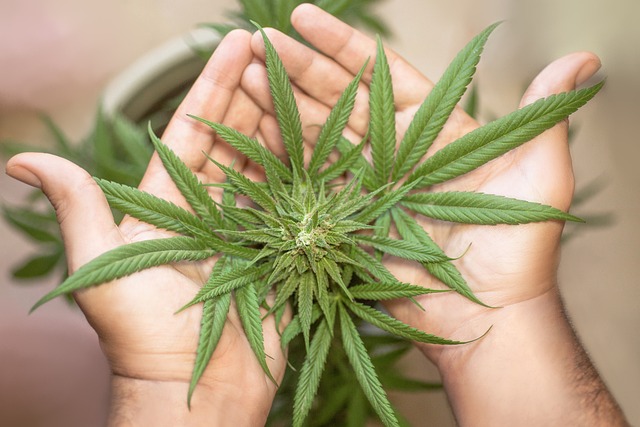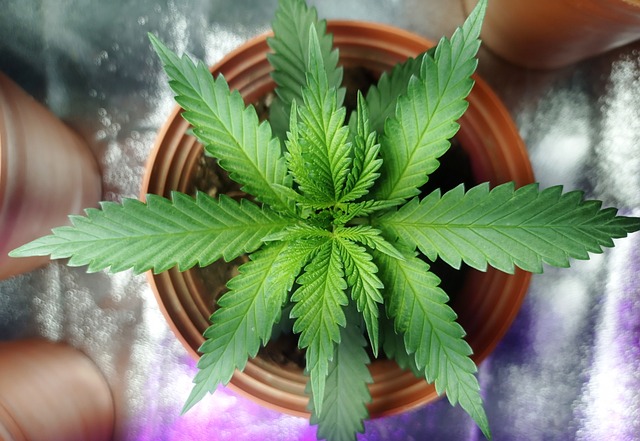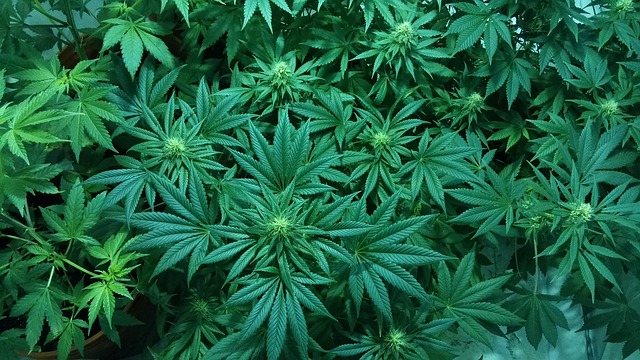THCA (Tetrahydrocannabinolic Acid), a non-psychoactive compound found in raw cannabis plants and legal in states like Illinois, is gaining recognition for its therapeutic benefits. Unlike its decarboxylated form THC, THCA does not produce a 'high' and has been reported to offer anti-inflammatory, neuroprotective, and pain-relieving effects without intoxicating users. As interest in natural health remedies grows, consumers in Illinois are increasingly exploring THCA-rich products for their potential health benefits, which include alleviating pain and inflammation, reducing nausea, and interacting with the endocannabinoid system to regulate physiological functions. The emerging research on THCA underscores its potential as a therapeutic option, making it a significant focus within the cannabis market, particularly in health and wellness communities. Users are advised to seek lab-tested products and consult healthcare professionals before incorporating THCA into their wellness routines, considering individual health profiles and conditions. The exploration of THCA's properties, especially in the context of its legality and therapeutic potential in Illinois, represents an exciting frontier in cannabis research and holistic medicine.
Exploring the multifaceted impact of THCA flower within the evolving cannabis landscape, this article delves into its emerging role and the nuanced interplay with our endocannabinoid system. As THCA is recognized for its potential therapeutic properties in states like Illinois where it’s legal, users must be well-informed about its side effects to consume responsibly. We’ll navigate the legal status of THCA flower, compare it to other cannabinoids, and discuss its effects on mental and physical health. With a focus on user experiences and safety, this comprehensive overview aims to address concerns, guide responsible use, and explore future trends in THCA research and legislation.
- THCA Flower and Its Emerging Role in Cannabis Use
- Understanding THCA: Potential Benefits and Effects
THCA Flower and Its Emerging Role in Cannabis Use

THCA, or Tetrahydrocannabinolic Acid, is a non-psychoactive cannabinoid found in raw cannabis plants, which, when heated, converts into the well-known psychoactive compound THC. The emerging role of THCA flower in cannabis use has garnered attention due to its potential therapeutic properties and distinct effects from those of THC. In states like Illinois, where THCA is legal, research and anecdotal evidence are shedding light on the benefits and applications of this compound. Consumers and medical patients in Illinois are exploring THCA-rich products for their anti-inflammatory, neuroprotective, and potential pain-relieving effects, often reported to be more subtle than those of its psychoactive counterpart. The legal status of THCA flower in Illinois has opened a door for users seeking alternative cannabinoid experiences, with the added advantage of being non-psychoactive, which may appeal to individuals who wish to experience the health benefits without the high associated with traditional cannabis products. As such, the role of THCA in the broader cannabis market is becoming increasingly significant, particularly in health and wellness circles where the focus is on natural remedies and holistic approaches.
Understanding THCA: Potential Benefits and Effects

Cannabidiolic acid A (CBD-A), a precursor to CBD, has garnered attention for its potential wellness benefits, and Tetrahydrocannabinolic acid A (THCA) is similarly attracting interest. THCA is the non-psychoactive form of THC found in raw cannabis plants and is legal in states where cannabis has been legalized, such as Illinois. As researchers continue to explore its properties, initial findings suggest that THCA may offer a range of therapeutic effects without the psychoactive ‘high’ associated with THC. Preliminary studies indicate that THCA could potentially alleviate pain and inflammation, exhibit neuroprotective qualities, and contribute to the reduction of nausea and vomiting in chemotherapy patients. These benefits are attributed to its interaction with the body’s endocannabinoid system, which plays a crucial role in regulating various physiological processes.
Incorporating THCA-rich cannabis flower into one’s wellness routine is becoming more accessible and legally permissible in regions like Illinois, where it aligns with state laws. Consumers interested in exploring the potential benefits of THCA should seek out high-quality, lab-tested products to ensure safety and efficacy. It’s important for individuals to consult with healthcare professionals before incorporating any new substance into their health regimen, especially considering the unique interactions and considerations that may arise from individual health profiles or existing conditions. As the body of research on THCA continues to expand, so too does the understanding of its potential effects, offering a promising outlook for those seeking alternative wellness solutions.
In light of recent research and legislative changes, such as THCA being recognized as legal within Illinois, it’s clear that the role of THCA flower in cannabis consumption is expanding. The exploration into its potential benefits and effects has provided insightful knowledge for users and healthcare professionals alike. While the implications of THCA are promising, it’s crucial to approach its use with caution, considering individual differences in response. As more studies unfold, staying informed about the evolving legal status of THCA and its impact on well-being will be key for those interested in its therapeutic properties.
